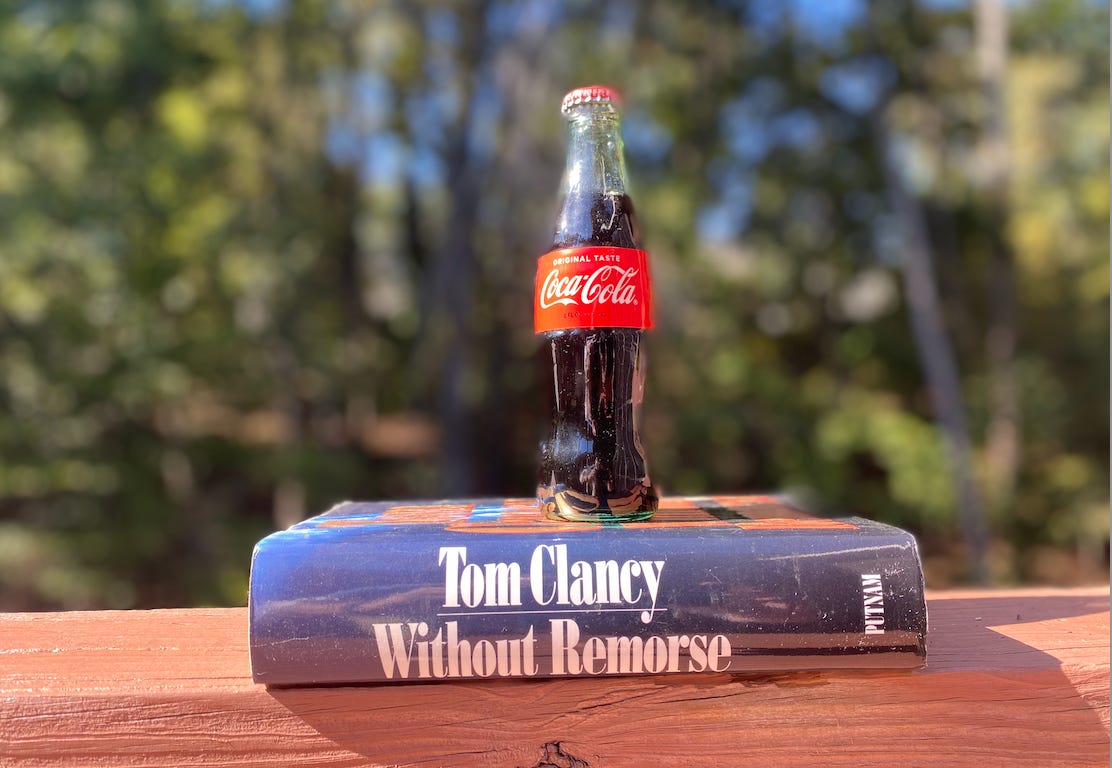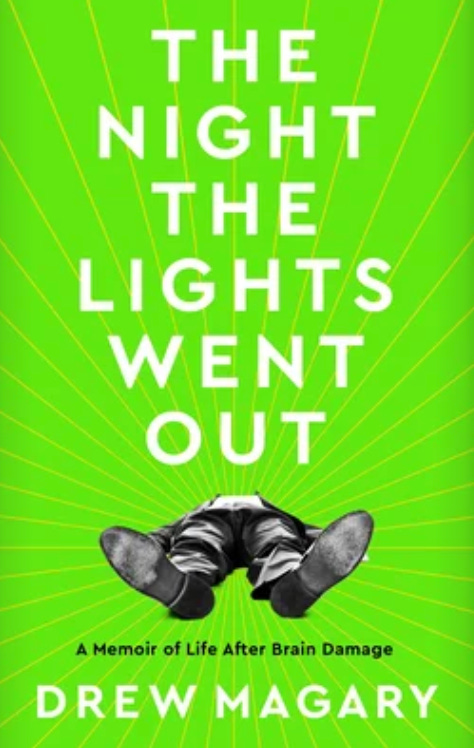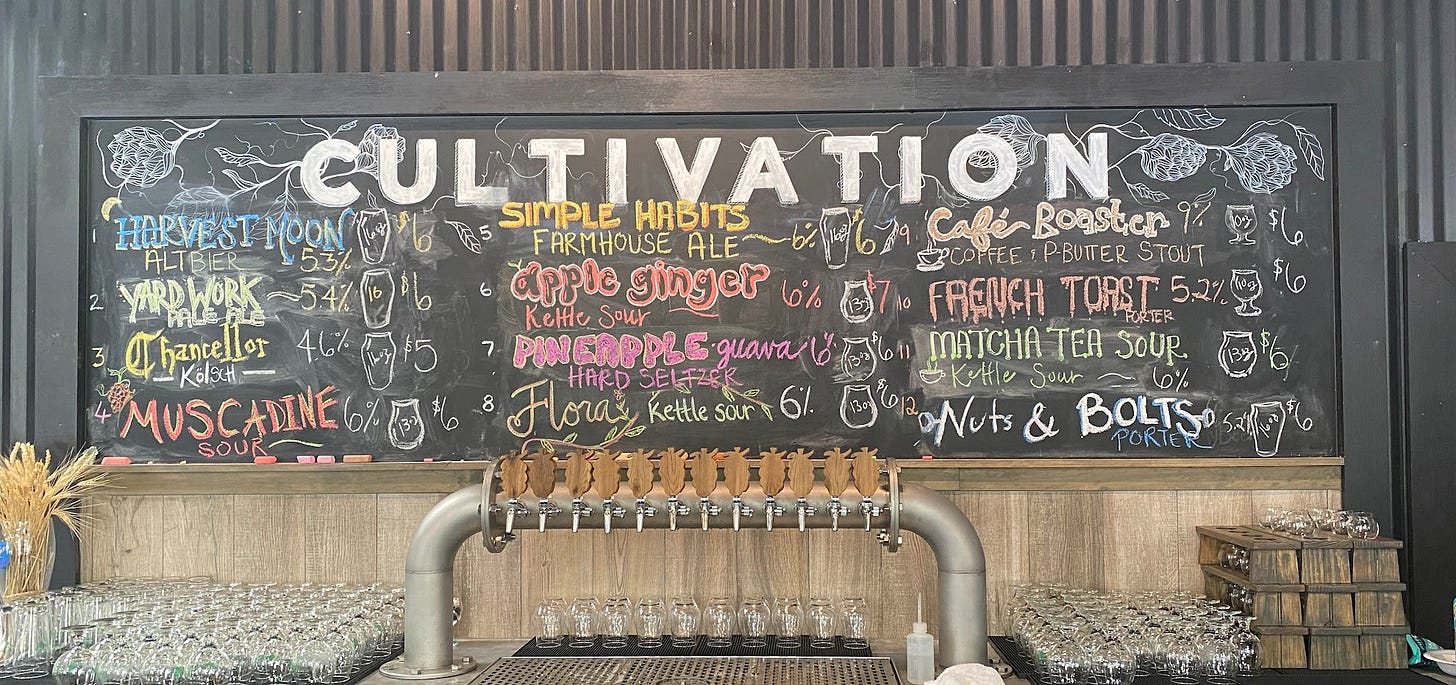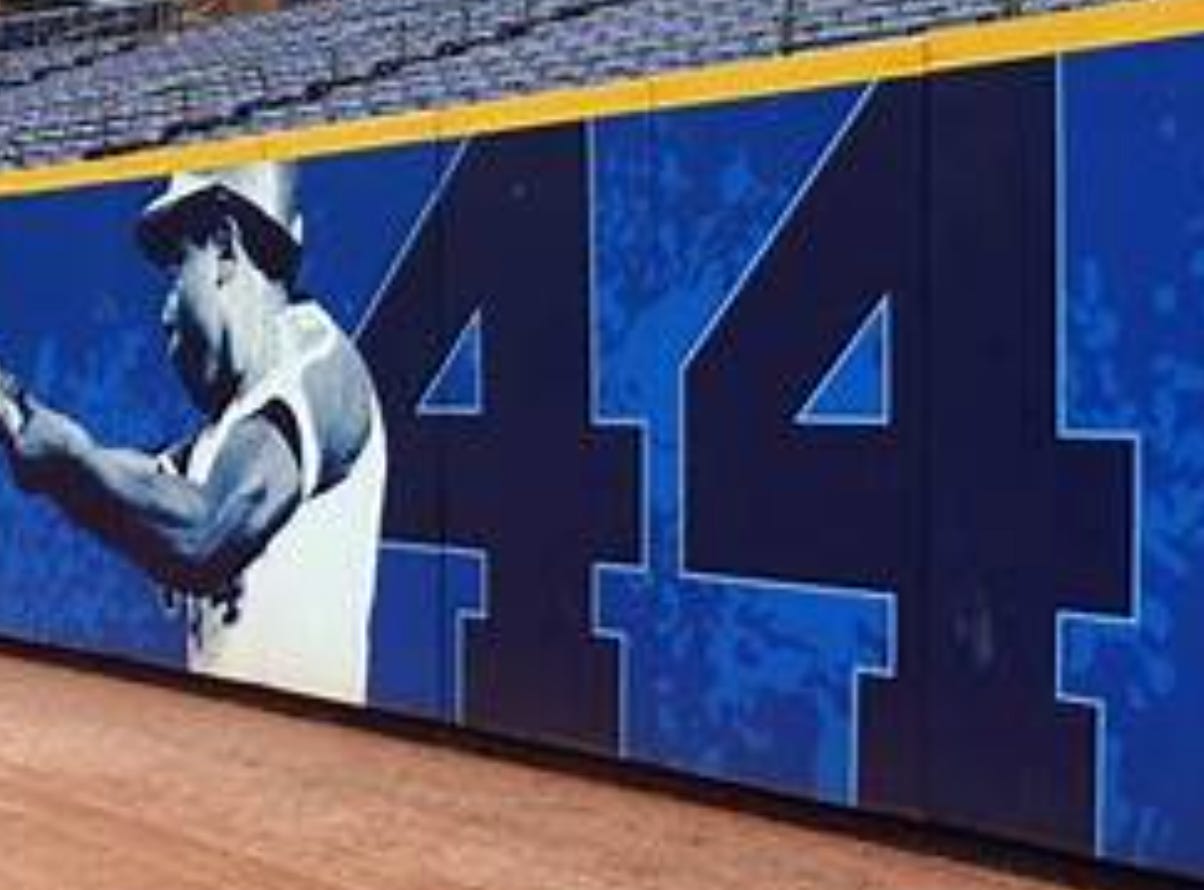'White Coke': The time Coca-Cola invaded Russia, kind of
Plus: Five Qs and a song with author Drew Magary! And other stuff!

Welcome to Flashlight & A Biscuit, my Southern culture offshoot of my work at Yahoo Sports. Thanks for reading, and if you’re new around here, why not subscribe? It’s free and all.
Here in F&AB #44:
How Coke went clear and infiltrated Russia
Five Qs and a Song with Drew Magary, author, “The Night The Lights Went Out”
Menus, music and life advice from a Florida sheriff
The story of Coca-Cola is the story of the post-Civil War South: a tossed-off little afterthought of creation that ends up with worldwide reach and influence. Whipped up by John Pemberton, a colonel in the Confederate Army — that tidbit often gets left out of the drink’s creation myth, can’t imagine why — the initial version of the drink was intended as a step-down for Civil War vets suffering from the addictive effects of morphine. (It was later billed as an elixir for “ladies, and all those whose sedentary employment causes nervous prostration.” Hey, that’s pretty much all of us now!)
First sold at pharmacy counters, back when terms like “elixir” were still in use, Coca-Cola soon secured a stranglehold on America’s psyche. In Atlanta, it’s even more pronounced — I can’t prove that there have been fistfights when some unfortunate Coke-less soul has asked “Is Pepsi OK?”, but I’m certain they’ve happened.
Myths and legends about Coca-Cola abound — yes, it used to have cocaine in it; no, it won’t dissolve your teeth overnight; a handful of peanuts dropped in one of the glass bottles is very good indeed — but here’s one of my favorites: the time Coca-Cola infiltrated the Soviet Union.
Journey back with us to Stalingrad, in the final days of World War II. (Bundle up.) Watch as Soviet general Georgi Zhukov orchestrates the defense of Stalingrad against a Nazi advance in November 1942, encircling and annihilating the Axis Army. He later leads an offensive that the Germans to the woodshed in the Battle of Kursk in 1943, which proves to be a decisive Nazi back-breaker. Real enemy-of-my-enemy situation here.
One of Zhukov’s superior officers called him “decisive and firm … demanding and persistent in his demands.” (Also: “absolutely cannot be used in staff or teaching jobs because constitutionally he hates them,” which is a good way to get out of work you can’t stand.) “Demanding” would be the key personality trait we’ll focus on here.
After the war, Zhukov met with Dwight Eisenhower, and Ike introduced Zhukov to the sublime pleasure of a good Coke. But given that the USA and the USSR were in the early stages of a war that wouldn’t end until Rocky Balboa knocked out Ivan Drago in 1985, Zhukov couldn’t exactly be seen swilling that most American of products.
So, according to legend, Zhukov approached the Coca-Cola Company about making a clear version of the caramel-colored soda. The amber-auburn color doesn’t add to the flavor in any measurable way, so Coke chemists whipped up a clear version. They then packaged the “white Coke” in cylindrical bottles rather than Coke’s trademark seductively-curvy ones, topping it with a white cap that bore a red star. Tom Clancy couldn’t have schemed it up any better.
Thus Zhukov could pound Coke like a freshman studying for finals, and everyone around him would think he was just hammering vodka like a good Russian. In return, Zhukov eased the way for Coke trucks to pass through Russian-controlled territory to reach a Vienna bottling plant. One hand washes the other. With Coke, which is kind of sticky, but still.
Now, do I believe this fanciful midcentury tale of American Capitalism Saving The Day? Eh. Let’s just say there are a few geopolitical, strategic and logistical question marks here; matters of wartime, national security and espionage are rarely settled with merely a Coke and a smile. But “the secret white Coke snuck into the Soviet Union” makes for a good story, and around here, that’s our gold standard.
I’ll toast finishing this week’s newsletter with a Coke, maybe with a touch of Jim Beam for company. Yeah, I know Coke’s not great for you, but it’s delicious. Plus, I can stop drinking it any time I want. Obviously.
[Sources: Atlas Obscura, my fridge]
Five Qs, One Song with Drew Magary, author, “The Night The Lights Went Out”
On the night of Dec. 5, 2018, Drew Magary, then a writer for the once-great Deadspin, was in the midst of a holiday party in New York City when he collapsed. Friends rushed him to a nearby hospital, where he was diagnosed with a dog’s breakfast of maladies: brain damage, fractures, internal bleeding, and many other catastrophic conditions that you don’t want on their own, much less as part of a band. After weeks in the hospital and months rehabbing, Drew wrote about his experience in one of the most harrowing articles of 2019. He’s since expanded that into a full book, which includes both recollections from friends during the time he was out, and a sense-by-sense breakdown of what it feels like to lose the parts of yourself that make you who you are.
I’ve never met Drew — I think I’ve seen him across the room at some of those big Super Bowl press scrums, but then again, we’re a couple White dudes in what’s often a sea of White dudes — but I’ve followed his career for years now. You’ve probably seen his annual Hater’s Guide to the Williams-Sonoma Holiday Catalog show up in your Facebook feed in December, and he’s equally filled with righteous, hysterical indignation whether he’s talking politics or football.
This book — which stares hard at the real truths of mortality and loss that we try to dodge every day — is his best work, but I’m pretty sure he’s not down for a sequel.
First off, congrats on the book. Any book is an effort to create, but what went into this was something else entirely. What kind of trepidation did you (and your family) have about digging back into the worst day of your life?
I had none because I don't remember it! I remember everything leading up to going to the karaoke bar where I collapsed, but I remember nothing else. So it was kind of imperative, not even from a storytelling perspective, but just for perspective in general, to go back and understand the details of exactly what happened and what my friends and loved ones had to go through. Everyone I talked to was happy to talk to me, I think because they trusted me to do right by them with the finished product. I remember when my dad read it and loved it, I knew that I hadn't fucked it all up.
The first part of the book is an oral history, recollections from those around you while you were out cold. How did the Drew that your friends and family were describing square with what you think/believe/know about yourself?
I thought that once I had emerged from my coma, I had a fairly decent grasp of who I was and how I had comported myself in the hospital. And that was WAY off. I was a fucking deranged prick! I was sullen and angry and uncommunicative. And UNGRATEFUL. My own memories of the hospital were scrubbed clean of a lot of that, so I'm glad that they all set me straight. Keeps me vigilant about making sure I'm not burdening everyone around me with my bullshit (which I still do from time to time).
You manage to find the humor in damn near everything — I forward your first-day-of-school piece every year, and I see your Williams-Sonoma takedowns show up in the Facebook feeds of high school friends who have no idea what a “Deadspin” was. Were you able to find anything funny at all with your recovery? (Robert Plant onstage voice) When were you able to laugh again?
Oh it was fucking hilarious. It sucked, but it's only human to find yourself in a rough spot and turn to gallows humor to cope. I remember having to do day planners in the hospital as part of my occupational therapy, and it amused me because the days I was planning were NOTHING like my normal workdays before I got hurt. I was like, "Hey, there's no block of time in here for me to go masturbate."
You’re a prolific guy — books, features, columns, hot takes. But you’re working in an era that seems less and less concerned with the written word. What do you see as the future of written journalism? Should we all just give up and start practicing TikTok dance moves?
Nah nah, writing will always be around. I don't even agree with your assertion that this era is less and less concerned with it. People write more now than they ever have. It's just not in the traditional guises that you and me grew up with: books, print magazines, newspapers, etc. It's texts and Insta captions and Discord chats and all sorts of new, cool shit. It's not worse, it's just different. And people read plenty, if only to catch Jon Gruden being racist as shit in an email. So I don't think written journalism is going away. I already lived through its migration to online platforms. It mutates and evolves and it's up to old fogies like me to adapt to it.
Those of us who haven’t been through a traumatic experience like you went through look to y’all for some kind of guidance and wisdom. So what did you learn from all this that can help the rest of us out, huh?
That if you die, you'll be fine. There's no flaming pit of hell waiting for you. You'll be all good.
Finally, the song. Thankfully, you didn’t die, and everyone’s glad for that. But when you DO meet St. Peter at the pearly gates, and he says you need to sing one song perfectly to get in, what do you go with and why?
Purple Rain, amigo. Purple Rain all the way.
Previous Five Qs, One Song:
The Roundup
Menu of the week: Cultivation Brewery, Norcross, Ga. I admire anyone that does a full chalk-written menu, particularly a vertical one like this. I had Chancellor, Flora’s Kettle Sour, Yard Work and … I can’t remember what else. Always patronize your local breweries.
Tunes: My Morning Jacket, “My Morning Jacket”: One happy sidelight of our Everything Everywhere Available Immediately culture is that if you realize you’ve got a hole in your cultural knowledge, why, you can get yourself up to speed in a hurry. I’d never really dug into My Morning Jacket, the shamble-rock band out of Louisville, until I saw two of their shows at Red Rocks in 2019. Those shows were a revelation, and not just for me; turns out the band itself got a creative reinvigoration out of them and this is the first result: an album of atmospheric post-guitar hero rock that sounds like a template for live 25-minute jaunts. Favorite cut: “Complex,” which you can hear on the F&AB playlist:
The Closer
Let’s wrap with some good life advice for the weekend:

Polk County sheriff Grady Judd — seriously, how perfect is a name is “Grady Judd” for a Florida cop — offers up some excellent thoughts on how to achieve work-life balance. “Just chill out. Drink a 7 Up. Eat a Moon Pie. Quit murdering people.”
Note he said “people.” Plural. Just be disciplined out there, OK, people? Catch you next week.
-Jay
This has been issue #44 of Flashlight & A Biscuit. Check out all the past issues right here. Feel free to email me with your thoughts, tips and advice. And if you dug this, share it with your friends. Invite others to the party, everybody’s welcome.




